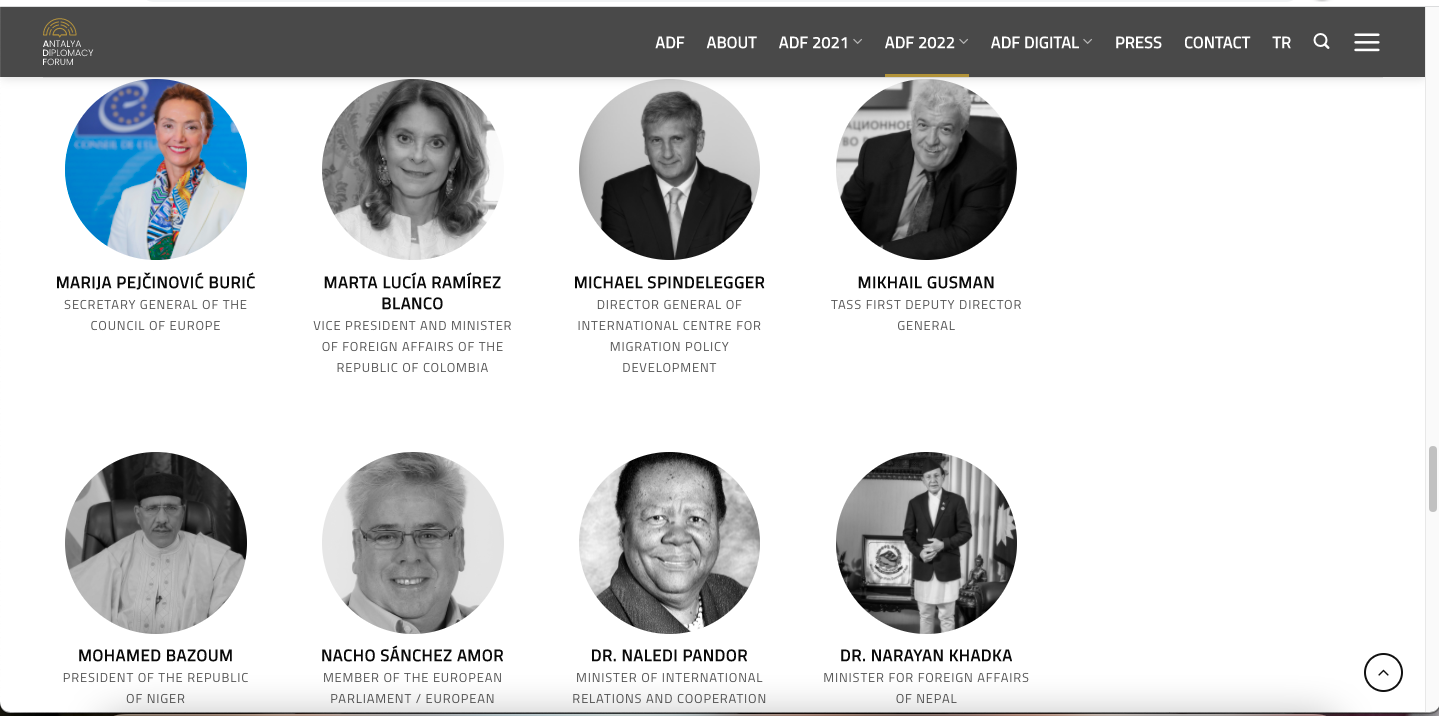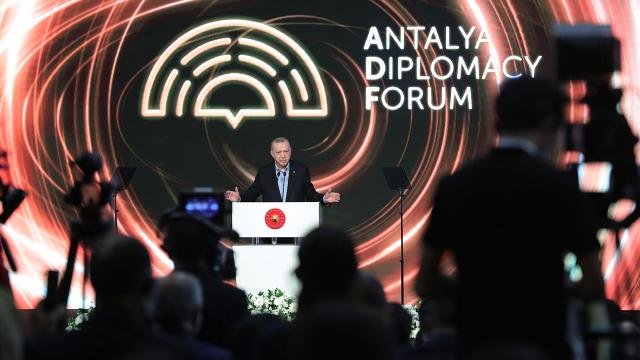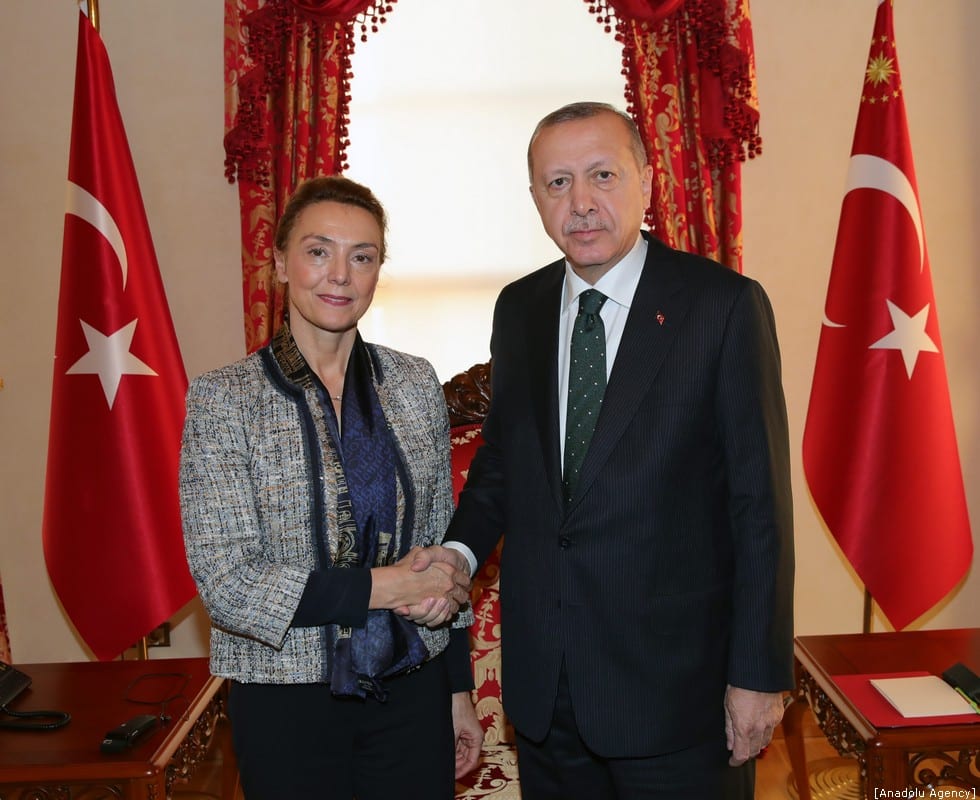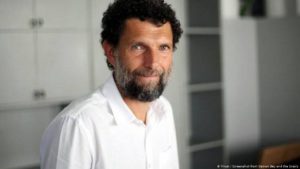Levent Kenez/Stockholm
Council of Europe (CoE) Secretary-General Marija Pejčinović Burić will surprisingly attend the March 11-13 Antalya Diplomacy Forum (ADF), the keynote speaker of which is Turkish President Recep Tayyip Erdoğan, as announced on the forum’s website. The ADF is a series of panel discussions whose aim for many is to polish Erdoğan’s personal image. So far no major countries such as the US, Russia, China, Germany, France, the UK or Japan have announced their attendance at the event, which will be held for the second time.

Relations between Turkey and the CoE are going through a serious crisis due to Turkish businessman Osman Kavala, who has been imprisoned since 2017 despite the decisions of the European Court of Human Rights (ECtHR), an international court of the CoE.
The Committee of Ministers, the executive organ of the CoE, on February 2 decided to take action against Turkey for failing to release Kavala despite the ECtHR ruling and ordered that the case be submitted to the ECtHR for review, officially beginning an infringement procedure against Turkey.

The ECtHR will establish whether Turkey has violated the European Convention on Human Rights (ECHR). If the Strasbourg court rules that Turkey has not fulfilled its obligations under the ECHR, then the Committee of Ministers will decide on the sanctions to be imposed on the country.
At a press conference before his trip to Ukraine last week, Erdoğan harshly criticized the CoE’s decision, saying it was unacceptable.

“We do not recognize those who do not recognize our courts. I say this very clearly. There are decisions made by our courts. What the European Court of Human Rights has said, what the Council of Europe has said, is not of much interest to us. We expect our courts to be respected,” Erdoğan told reporters.
Burić has actually made some very harsh statements against Turkey regarding Kavala. Addressing a hybrid session of the Parliamentary Assembly of the Council of Europe (PACE) in January 2021, she said the European Convention on Human Rights and the European Social Charter are the soul of modern Europe, adding that compliance by member states with rulings of the ECtHR was not a “kind request” but a “binding requirement.” She said it was utterly wrong that the Turkish authorities had still not released Kavala despite the court having called for his release in a final judgement in 2019.
In October 2021 the ambassadors of 10 countries, including the US, Germany and France, demanded Kavala’s immediate release in line with the 2019 ECtHR ruling. The tension, which had escalated with Erdogan’s threat of declaring them persona non grata eased with the ambassadors’ statements that they were respectful of the UN convention that required diplomats not to interfere in the host country’s domestic affairs.
An İstanbul court on Thursday ruled once again to keep Kavala in jail following a monthly review of an appeal against his imprisonment.

EU leaders have been harshly criticized by human rights defenders who claim that they are turning a blind eye to human rights violations in exchange for Turkey’s efforts to keep refugees in its territory. Erdoğan’s government prevents refugees from entering Europe in exchange for money from the EU, and from time to time Erdoğan creates artificial crises to increase his bargaining power.
Meanwhile the forum is being coordinated by Ambassador Murat Karagöz, director general for information at the foreign ministry. Nordic Monitor previously published profiling documents sent by Karagöz to Ankara when he was ambassador to Jordan from 2016 to 2019 as part of the spying activities of Turkish diplomats abroad. Turkey’s foreign minister, Mevlüt Çavuşoğlu, the host and one of the speakers at the event, said earlier that Turkish diplomats assigned to embassies and consulates have officially been instructed by the government to conduct such activities abroad. “If you look at the definition of a diplomat, it is clear. … Intelligence gathering is the duty of diplomats,” he said.












